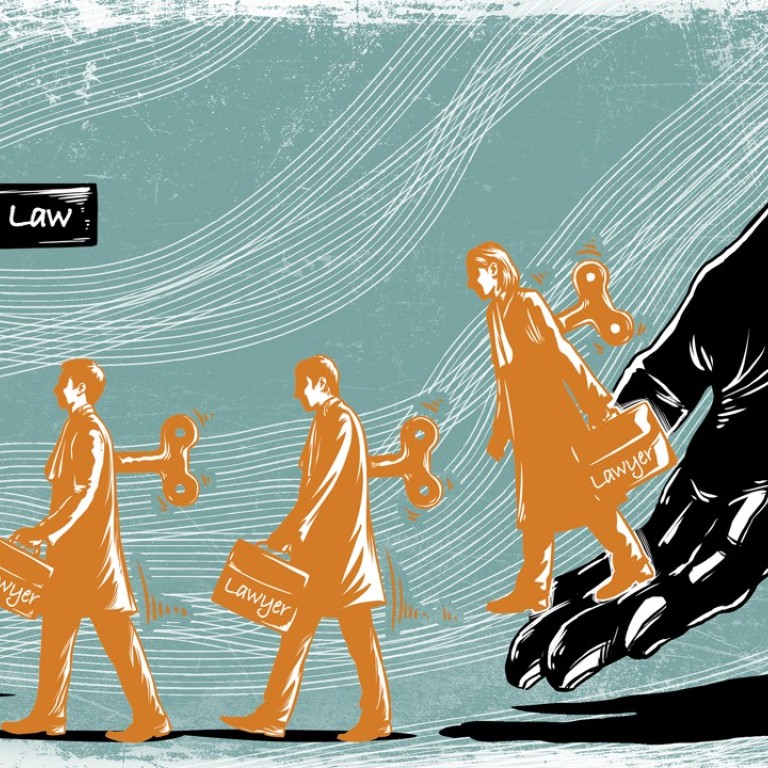
Trial by fire: three years on from the crackdown that put China’s nascent human rights law movement to the test
The wave of detentions from July 9, 2015, was just the start of the authorities’ efforts to tighten their grip on the legal profession
Sui Muqing was thinking about leaving the law altogether. The forty-something graduate of one of China’s top law schools had an established career in commercial and criminal litigation in the southern Chinese city of Guangzhou but was disillusioned by the day-to-day reality.
“I often felt like a worthless wimp, having to cultivate favour with the authorities and judges. It was merely a job to make a living – I got so tired of it over time,” he said.
That all changed when he met the city’s leading human rights lawyer Guo Feixiong and found another way to use his advocacy skills.
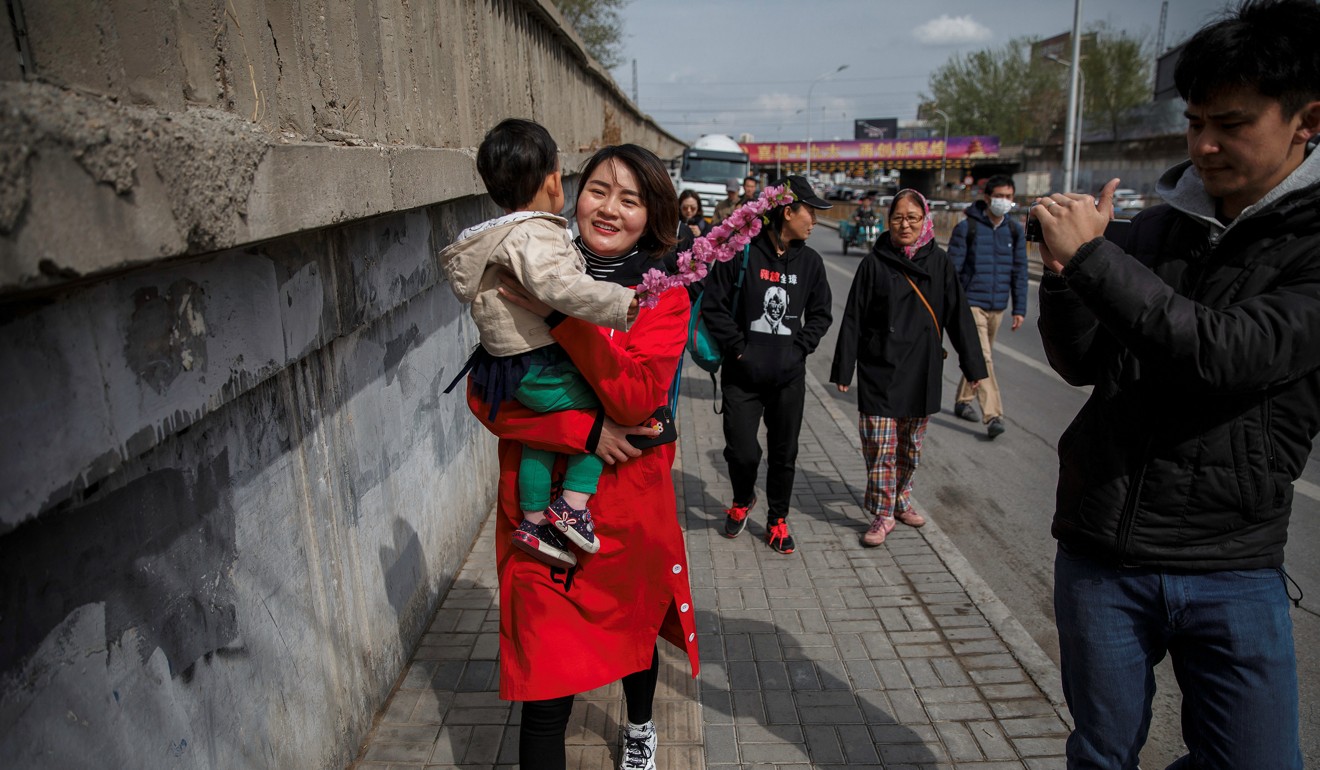
Sui was inspired by Guo’s example and started representing the poor and vulnerable, either for free or minimal fees.
“You can’t only think about the money. There is also the question of dignity, your self-worth, your social value, to which you can find an answer in a rights lawyer’s work,” he said.
But now Sui is suffering the consequences of his decision, barred from working as a lawyer in the aftermath the “709” crackdown on or soon after July 9, 2015.
He was one of about 300 rights lawyers, legal assistants and activists rounded up across the nation in a major clampdown on dissent.
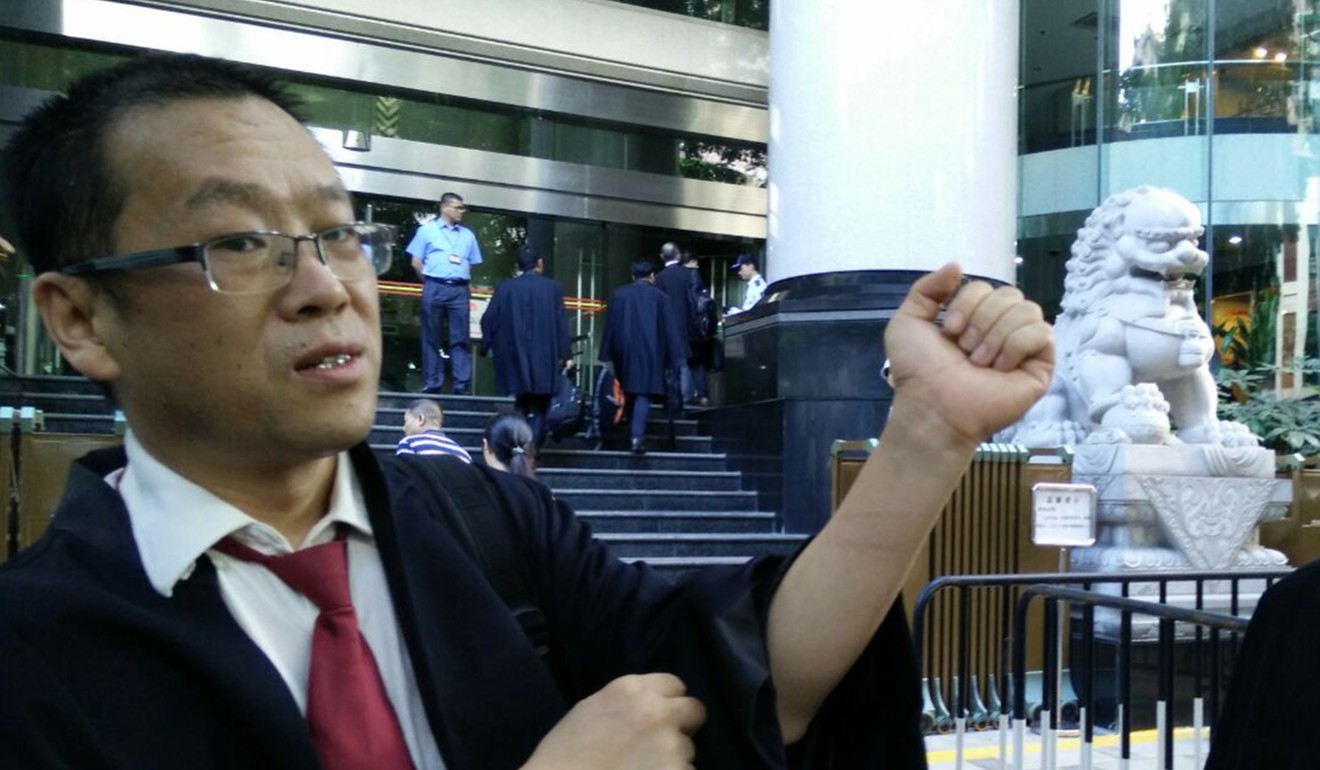
Three years on, those events still reverberate in the rights community, with a string of disbarments, new stifling regulations on lawyers and law firms and the ever-extending reach of the Communist Party into the legal profession.
Fu Hualing, a law professor at the University of Hong Kong, said the crackdown symbolised “the end of an era” of promoting rule of law and human rights that started in the early 1990s.
In China, “human rights” did not became part of the official lexicon until 1991, when the State Council, the country’s cabinet, published its first white paper on the subject. At the time, all lawyers were civil servants on the government payroll, but five years later, with the passage of China’s first lawyers law, they became an independent profession.
Questions raised over death of ‘healthy’ rights lawyer in hospital
That’s when legal advocacy burgeoned, with a growing number of lawyers taking on cases on behalf of the disenfranchised and downtrodden – often victims of arbitrary state power or breakneck urbanisation. Political repression continued but the social and legal activism became tolerated to a small degree, supported by a fledgling civil society and a handful of relatively outspoken media outlets.
But that came to an abrupt halt after Xi Jinping came to power in 2012. The “709 crackdown” came just nine months after Xi held a full meeting of the party’s Central Committee, a session that for the first time was devoted to improving “rule of the country by law”.
PERSONAL PRICE
The personal and immediate effects of the crackdown were felt by Sui and his fellow detainees. On the second night of 709, Sui was taken by police and placed under “residential surveillance at a designated location” – a form of secret detention – for six months, followed by a month of house arrest.
During his detention, Sui was subjected to sleep deprivation for up to five days. “On the last day, there was a suffocating pain all over my body, and I thought I was about to die – so I pleaded guilty to inciting subversion,” he said. He was released after compiling a lengthy statement of self-criticism.
By the summer of 2016, Sui was taking on human rights cases again. Then, out of the blue, justice officials informed him in January that he would be disbarred under retroactively applied regulations.
Since late last year, 17 rights lawyers – including 10 709 lawyers and their advocates – have had their licences to practise law revoked, according to the Hong Kong-based China Human Rights Lawyers Concern Group.
Without a licence, they can no longer go to court and are limited to work such as non-litigation legal services or consulting.
“It definitely translates into a sharp cut in my income,” said Wen Donghai, a lawyer in central Hunan province who was disbarred in May.
Detained rights lawyer: ‘I will never accept’ government attorney
Formerly specialising in intellectual property cases, Wen defended another prominent rights lawyer, Wang Yu, who was caught in the crackdown.
With two young children and a 70-year-old mother to take care of, Wen said his disbarment had put him under “tremendous financial pressure”.
Sui said the authorities’ motivation was obvious. “The authorities want to tame the lawyers into tools to cooperate with them in all sorts of courtroom performances,” he said.
“The crackdown has caused a massive panic – many formerly active lawyers no longer dare to speak out against the government or take on [sensitive] cases.”
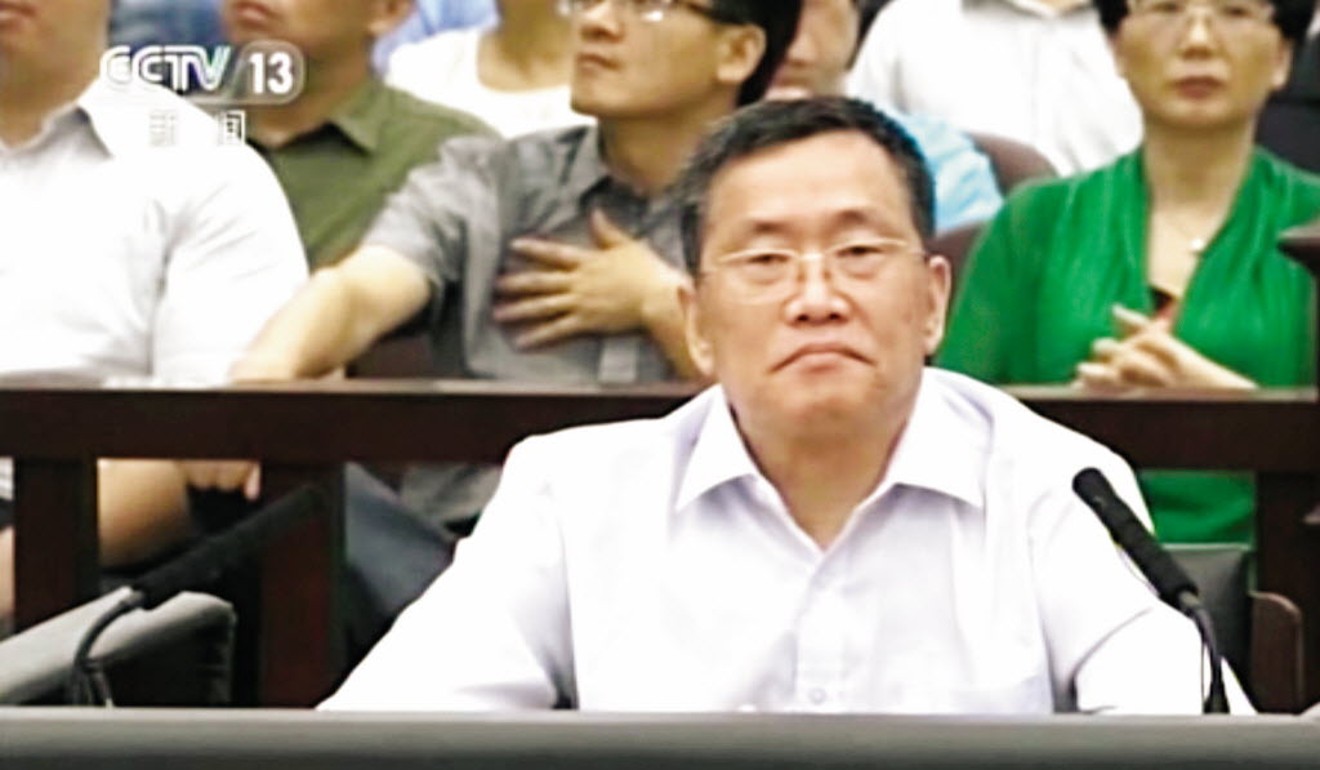
Those who do hesitate to take photos of their clients in detention, publish updates on their cases online, or speak to the media – protective practices that were once common.
Other lawyers are still behind bars, including Zhou Shifeng and Jiang Tianyong and four other activists. There has been no word from Wang Quanzhang for three years and his defence lawyer, Yu Wensheng, was himself detained in January.
Wang Yu was also held until she was tortured, abused and humiliated into making a televised “confession”. “The 709 crackdown is still far from ending,” she said. “The slew of disbarments this year is just a new way to continue the crackdown on the lawyers.”
Second Hong Kong film on mainland China’s ‘709’ human rights crackdown shows lives of families seeking asylum in US
NEW RULES
Even before the wave of disbarment hit, other measures were already in place to rein in the sector.
In November 2016, the Ministry of Justice introduced amendments to regulations for lawyers and law firms. The changes stated that law firms whose lawyers exerted pressure on judicial authorities could face penalties, including revocation of the firms’ licences.
The firms would now be held responsible if their lawyers made “misleading and distorting comments” about cases, “provoke discontent towards the party”, signed petitions, filed open letters or held legal forums to discuss cases to “pressure” or “attack” judicial departments.
Wife of detained lawyer says she is under house arrest
“This is basically asking law firms to censor themselves and help the government to enforce political censorship on their lawyers,” said Eva Pils, law scholar at King’s College London studying China’s human rights lawyers.
One casualty of the new regulations is the Fengrui Law Firm in Beijing – a Beijing law practice at the centre of the 709 crackdown and where Zhou Shifeng, Wang Yu and Wang Quanzhang worked. It employed nearly 100 lawyers at its peak and handled many sensitive cases, from dissident artist Ai Weiwei, to blind legal activist Chen Guangcheng, rights lawyer Gao Zhisheng and ethnic Uygur scholar Ilham Tohti.
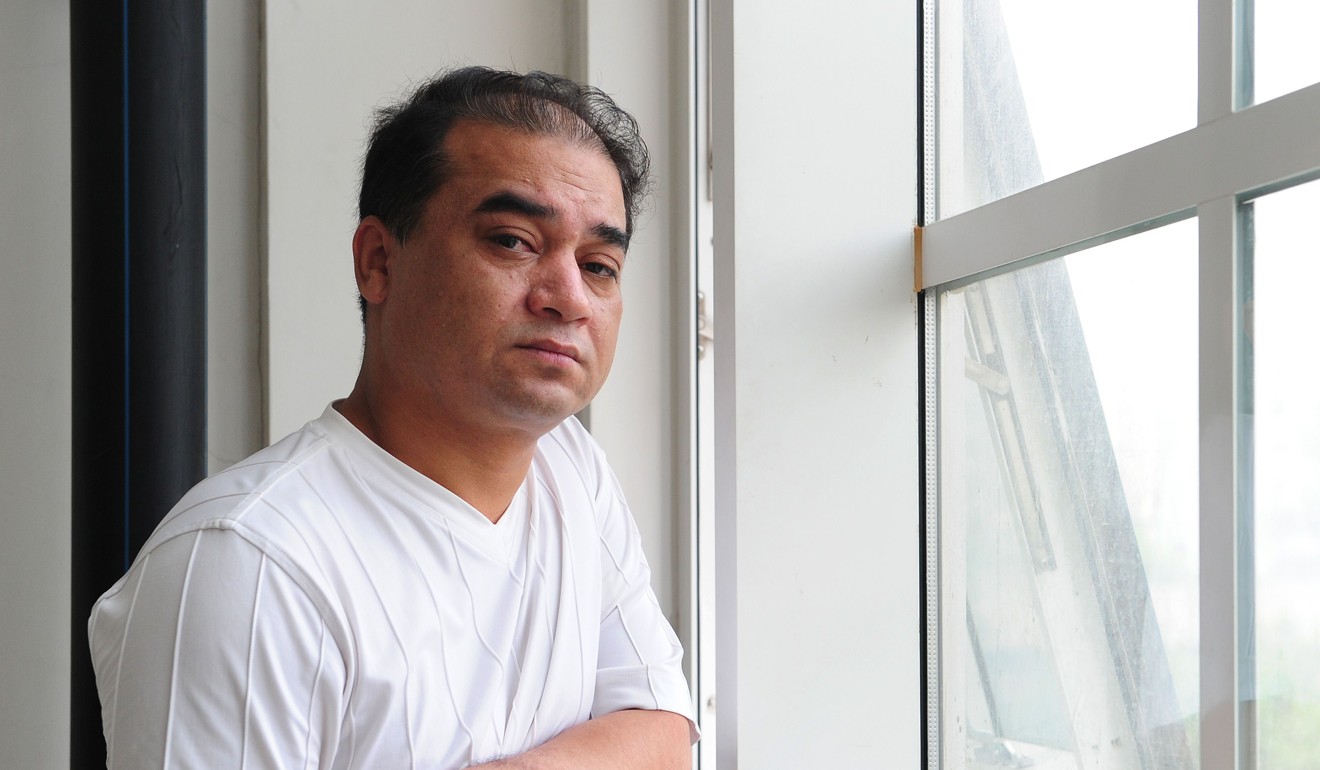
Its license was revoked in March, on the grounds that the firm had violated the new regulations by “tolerating and covering up disciplinary offences” conducted by its director Zhou Shifeng and others. This is despite the fact that the firm ceased operation in July 2015 – over a year before the regulations went into force.
Meanwhile, the party has been aggressively expanding its cells in all levels of lawyers associations, in line with its broader effort to bolster its presence in all professions and industries.
Unlike the independent bar associations in Hong Kong or the United States, Chinese lawyers associations act more as a government arm to control their members.
By May, all provincial-level lawyers associations and 99.1 per cent of their municipal counterparts had set up party organs, Xinhua reported.
The party cells had “strengthened the political building” of lawyers. Among the country’s 365,000 lawyers, almost one third are party members, according to official data.
Wen Donghai was one of those party members until July 3, when announced he was withdrawing his membership. The provincial lawyers association had warned him that it was about to “take disciplinary measures” against him – partyspeak for punishment that ranges from a verbal warning to expulsion.
Wen said the association had launched a smear campaign against him online and tarnished his reputation. “Why do I want to be in such an organisation that has no bottom line in their despicable actions?” he said.
The association declined to comment.
China’s chance to show goodwill on missing rights lawyer
LAW UNTO ITSELF
While tightening control over the legal sector, Xi’s administration has time and again vowed to improve “rule by law”. For lawyers targeted in the 709 crackdown, there is no illusion about the slogan.
“‘Rule by law’ itself is a false concept and is entirely on the opposite side of ‘rule of law’,” Sui said.
“‘Rule of law’ means the party should be held accountable by law, while ‘rule by law’ means the party is above the law and simply using the law to rule the people.”
In China, the courts and prosecutors are still controlled by the party, with the country’s top judge, Zhou Qiang, describing judicial independence as a “false Western ideal”.
Wang Yu agreed, saying China’s rule of law was actually regressing.
“The 709 crackdown has led the rule of law in China to plunge from its highest point, which it had gradually reached after the end of the lawless decade of the Cultural Revolution,” she said.
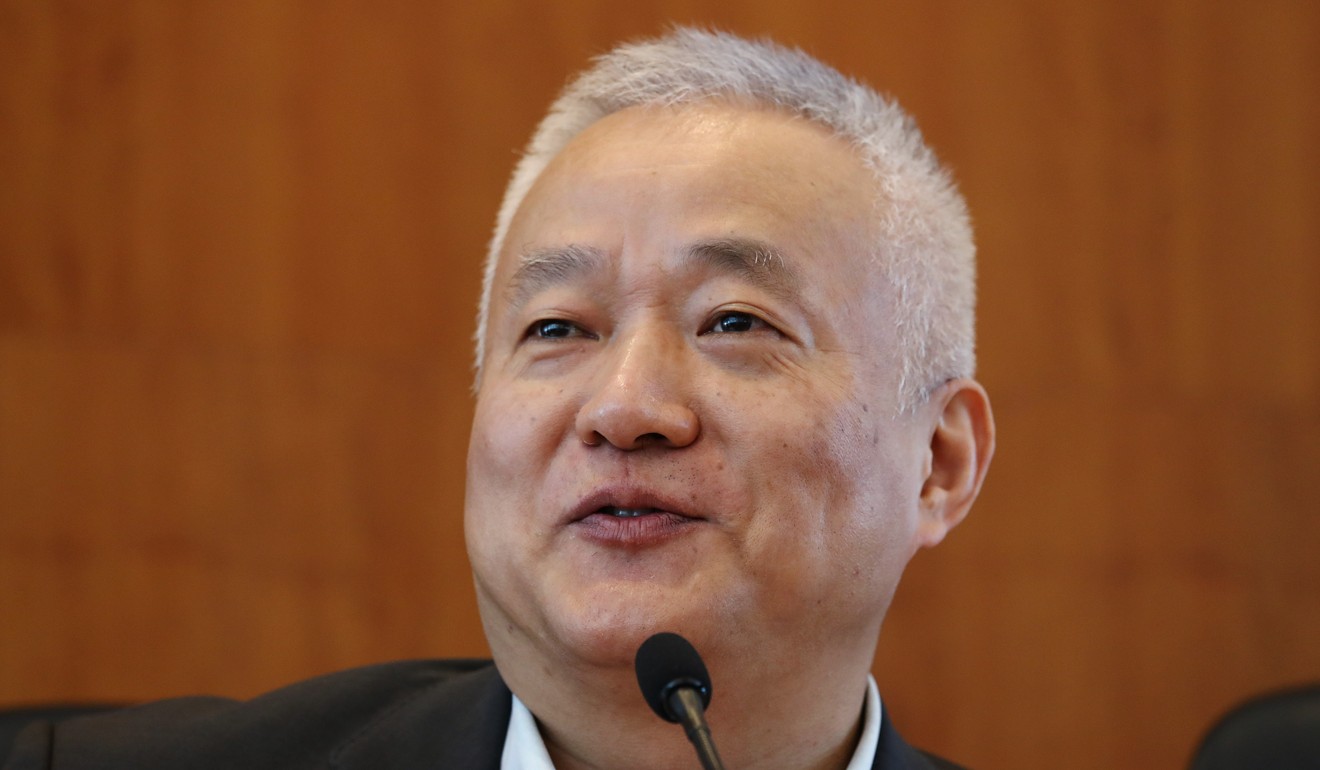
But Professor Fu Hualing said Xi’s administration was dividing the rule of law into two spheres.
The first was an exceptional zone where the rule of law did not apply, and where the party dictated everything according to political circumstances. “It’s a space of emergencies, risks, and political dangers. So what’s in that space? You can imagine issues such as Xinjiang, Tibet, Falun Gong, underground churches, and rights lawyers,” he said.
Fu said the rule of law the administration had been promoting was outside that space, such as contract disputes, divorces, intellectual property and the environment.
“In those areas rule of law is much stronger ... than the past ... There are better rules, better lawyers, the courts are somehow forced to consider a wide range of legal factors that they didn’t really pay much attention to in the past,” he said.
“On intellectual property protection, for instance, China is at its best.”
In 2016, Chinese courts began hearings in 152,000 intellectual-property disputes, up nearly tenfold over the past decade.
But the boundaries of the exceptional zone were fluid, open-ended and uncertain, Fu warned.
“The question is, can you really quarantine this exception zone? Is it sustainable?”
Jailed founder of China’s underground human rights site in poor health as state secrets trial looms
For Pils, the answer is no.
“It’s quite clear that it’s impossible to feel safe in a system in which anyone, any case, could become sensitive, just because the government says so ... It’s a completely shifting boundary. In fact, you can ask yourself if there is a boundary at all,” she said.
“From the perspective of the party state, [it wants to] create a technically better functioning legal system, where the rules are enforced and implemented, where there is less corruption, where essentially there is more predictability for ordinary people relying on the law.
“But I think it is impossible to construct a better functioning legal system while relying on lawlessness to the extent the party state does now, with its use of unbridled coercion, abusive measures, and repressive tools.”
Additional reporting by Mimi Lau

